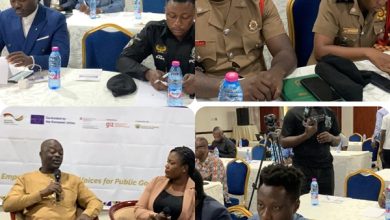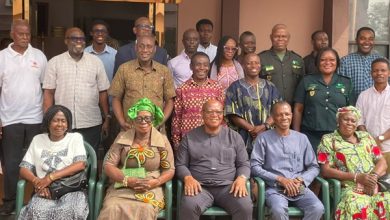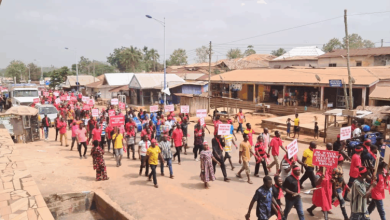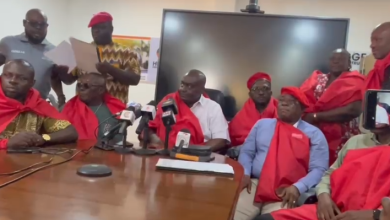Kamala Harris tours Cape Coast castle | Encourages all to learn a history of endurance
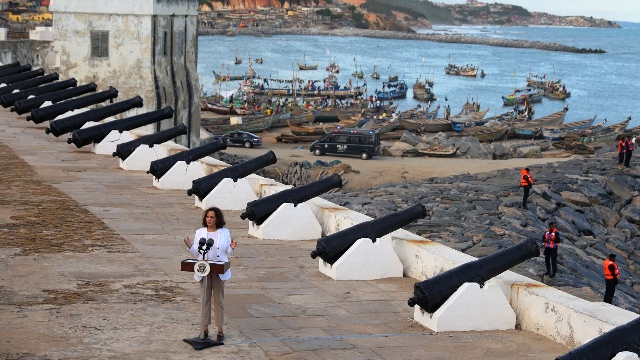
The Vice President of the United States of America Kamala Harris rounded up her three-day tour of Ghana on Tuesday, 28 March 2023 with a tour at the Cape Coast castle.
Touched by the history of how Africans were transported to the Americas and Caribbean as slaves and their struggles, she said the horror of what happened must always be remembered, it cannot be denied, it must be taught and history must be learned.
In an address at the Cape Coast castle after her tour she encouraged all to learn a history of endurance, a history of faith, a history in believing what is possible, a history not only that tells about the ability that each individual has to survive, but to thrive from the fact that some slaves survived, despite the terror and inhumane treatment.
Sharing the lessons she had learnt from her tour of the castle, Vice President Harris said “the descendants of the people who walked through that door were strong people, proud people, people of deep faith; people who loved their families, their traditions, their culture, and carried that innate being with them through all of these periods; went on to fight for civil rights, fight for justice in the United States of America and around the world. And all of us, regardless of your background, have benefited from their struggle and their fight for freedom and for justice.”
Below are details of her address from the Cape Coast Castle:
THE VICE PRESIDENT:
So, being here was — was immensely powerful and moving, when we think about how human beings were treated by the hundreds of thousands in this very place that we now stand, the crimes that happened here, the blood that was shed here.
There are dungeons here where human beings were kept — men, women, and children. They were kidnapped from their homes. They were transported hundreds of miles from their homes, not really sure where they were headed. And they came to this place of horror — some to die, many to starve and be tortured, women to be raped — before they were then forcibly taken on a journey thousands of miles from their home to be sold by so-called merchants and taken to the Americas, to the Caribbean to be an enslaved people.
We don’t know the numbers who died on their way to this place, the numbers who were killed during that passage on the Atlantic. The horror of what happened here must always be remembered. It cannot be denied. It must be taught. History must be learned.
And we must then be guided by what we know also to be the history of those who survived in the Americas, in the Caribbean — those who proudly declare themselves to be the diaspora who then came out of — in, often, many situations — odds that were designed to break them, to demoralize them, to crea- — create systems and situations that were to make them feel like less than humans, less than full human beings.
But yet, they survived. And they tell another history — a history of endurance, a history of faith, a history in believing what is possible, a history not only that tells about the ability that each individual has to survive, but to thrive.
And so, all these stories must be told. All these stories must be told in a way that we take from this place — the pain we all feel, the anguish that reeks from this place. And we then carry the knowledge that we have may gained here toward the work that we do in lifting up all people, in recognizing the struggles of all people, of fighting for, as the walls of this place talk about, justice and freedom for all people, human rights for all people.
So, that’s what I take from being here. The descendants of the people who walked through that door were strong people, proud people, people of deep faith; people who loved their families, their traditions, their culture, and carried that innate being with them through all of these periods; went on to fight for civil rights, fight for justice in the United States of America and around the world.
And all of us, regardless of your background, have benefited from their struggle and their fight for freedom and for justice.
Thank you.
END

